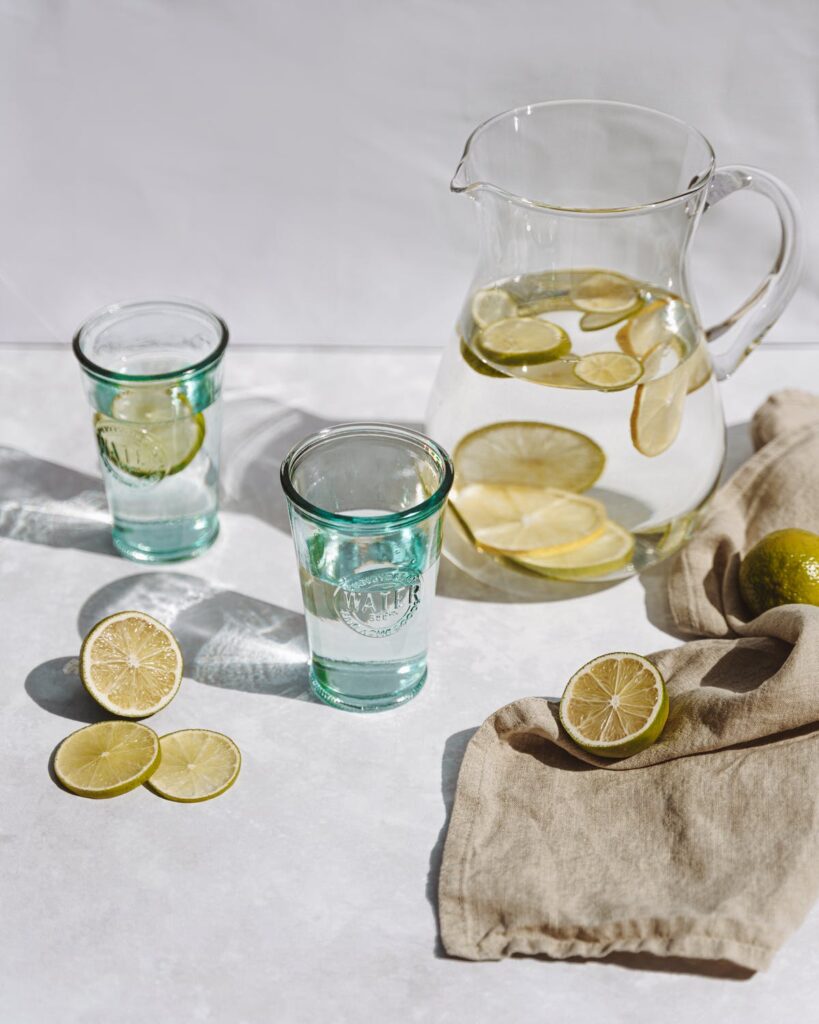
Does Drinking Water Help Your Skin?

Let’s be clear: There isn’t really a downside to drinking water. In fact, our bodies are made of about 70 percent water, and it makes up the majority of our blood, digestive fluids and sweat. From aiding digestion to regulating our body temperature, it’s an essential part of staying healthy and hydrated. And many experts agree — it plays a vital role in happy, glowing skin.
Water Improves Your Skin Tone: Water flushes out toxins and helps prevent premature aging by promoting elasticity in your skin.
Water Promotes Healing: From burns and cuts to acne, water works to reduce puffiness when your skin is under stress. When you’re well hydrated, your face doesn’t have to retain water to protect you from dehydration.
Water Helps Prevent Acne: By balancing the oil and water content in your face, water aids in maintaining your pH balance — an infamous acne trigger.

So, how much water should you be drinking? A simple way to calculate it is to divide your weight in half, then drink that amount in ounces. In other words, if you weigh 140 pounds, you’ll want to drink around 70 ounces of water each day.
One of our favorite stay-hydrated tricks? Buy a reusable water bottle that you love and will want to carry with you everywhere … then do it! Some water bottles even offer ounce or time of day markers to keep you on track. We also love adding a few lemon or cucumber slices to our water for a nutrition and flavor boost!

Remember, your water intake does not need to come by guzzling glass after glass of the clear stuff. Many foods have a high water content — tomatoes and lettuce are 95 percent water, Spinach is 93 percent and cucumber is 91 percent — which means you can eat your water, too. Some other hydrating foods we love? Celery, zucchini, broccoli, Brussels sprouts, oranges, apples, watermelon, strawberries, cantaloupe and peaches. (Learn more about our Top 10 Foods for Glowing Skin)

While many foods do help to hydrate us, the opposite can be true for others. Experts suggest avoiding processed foods and foods high in saturated fat, which often dehydrate our bodies.


